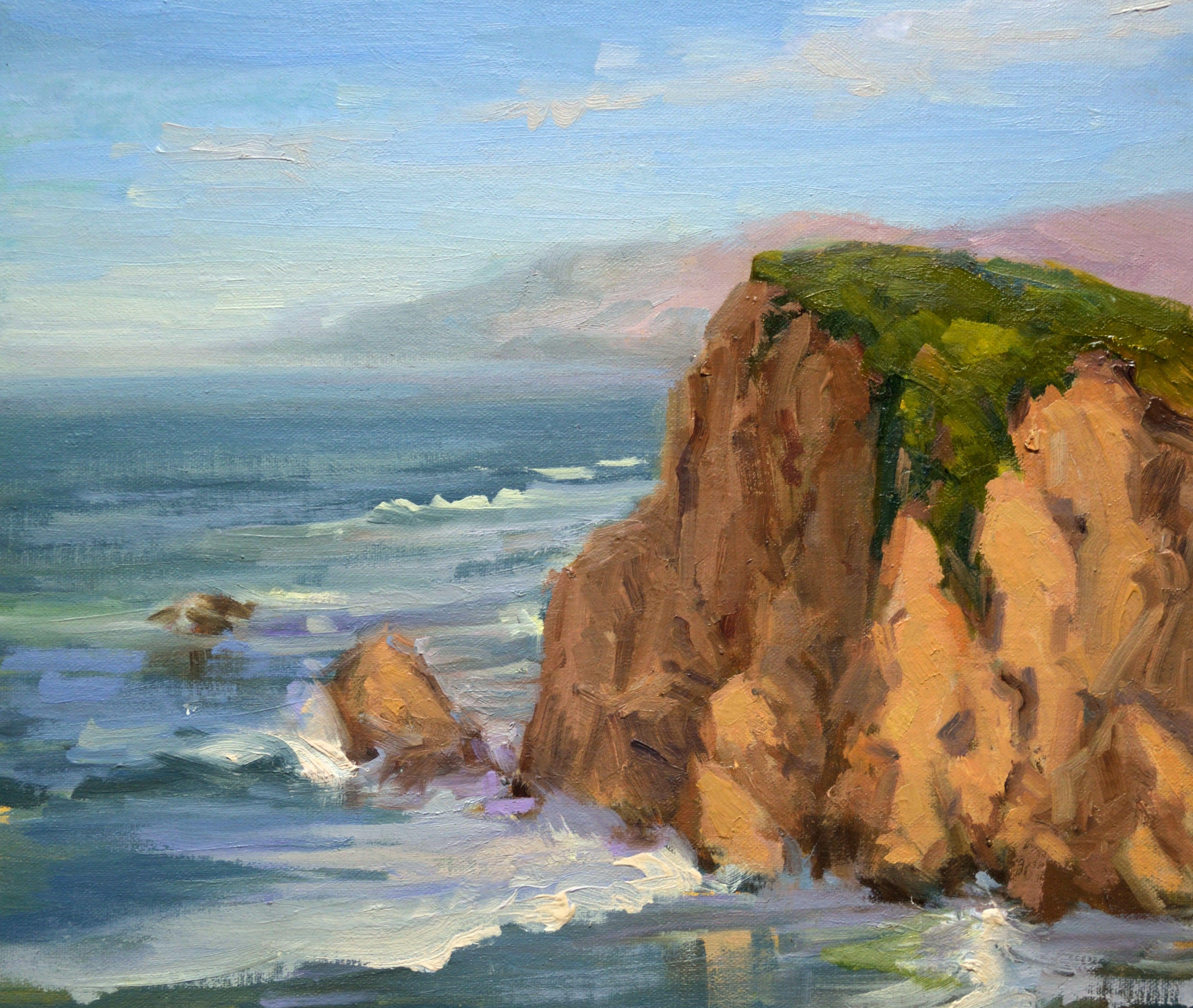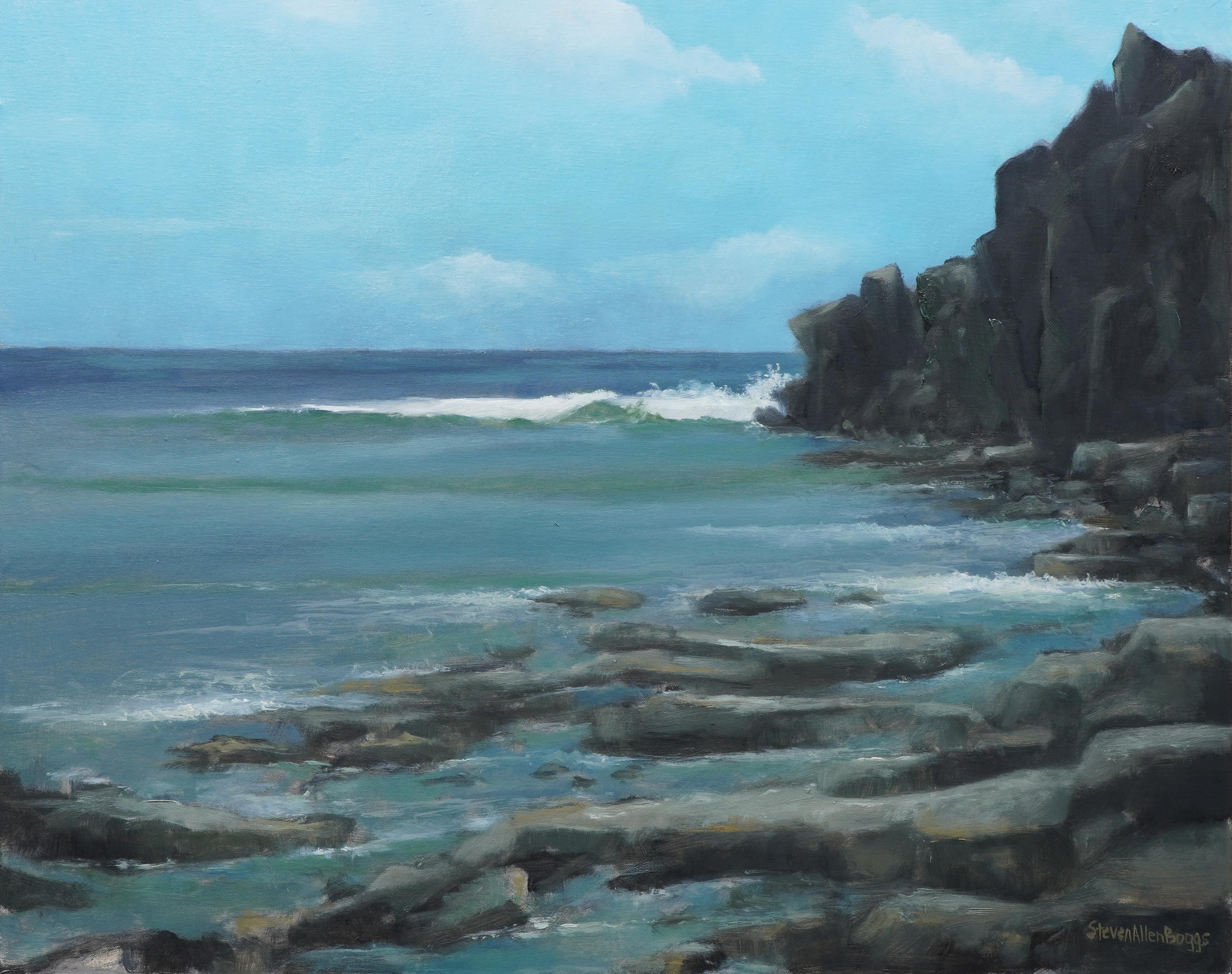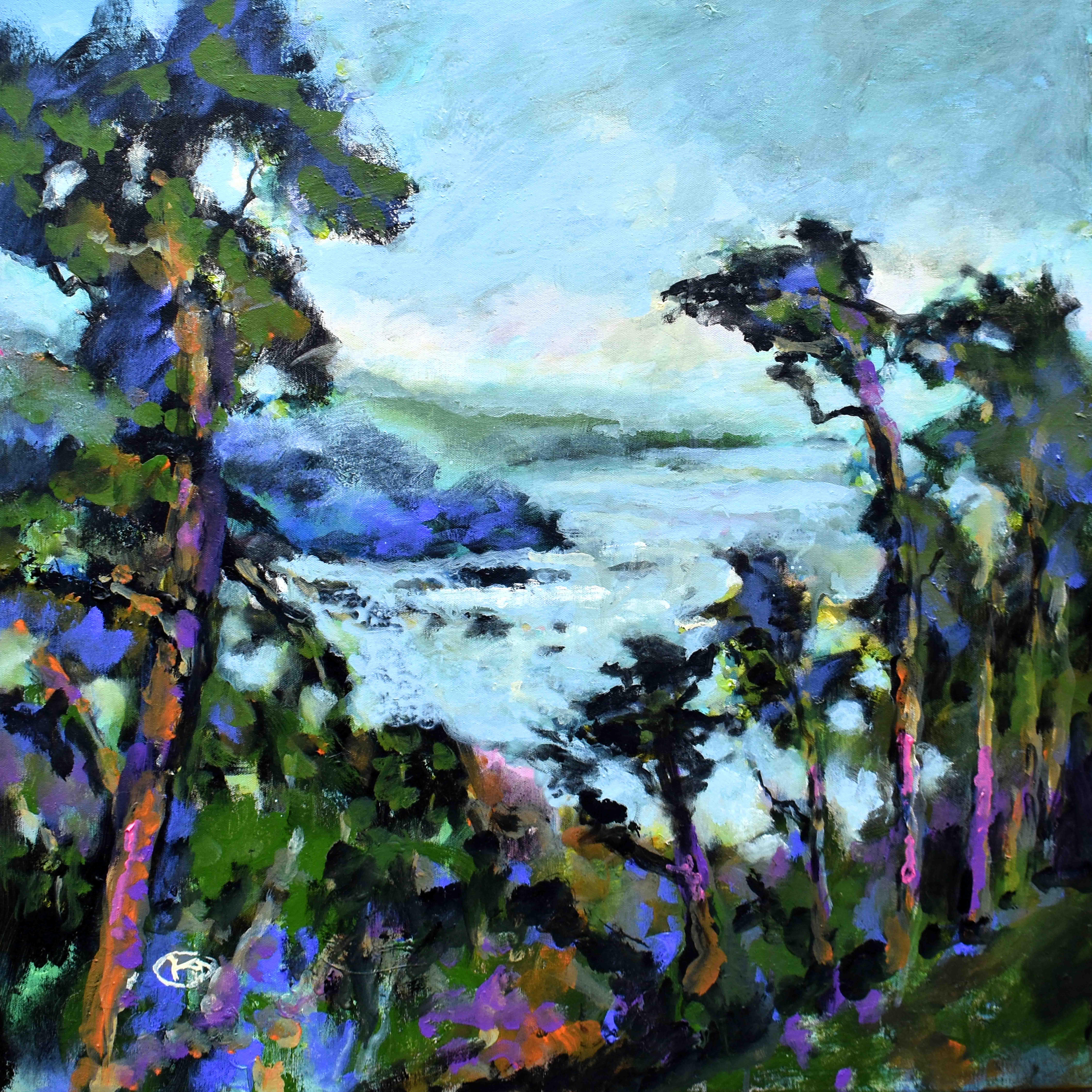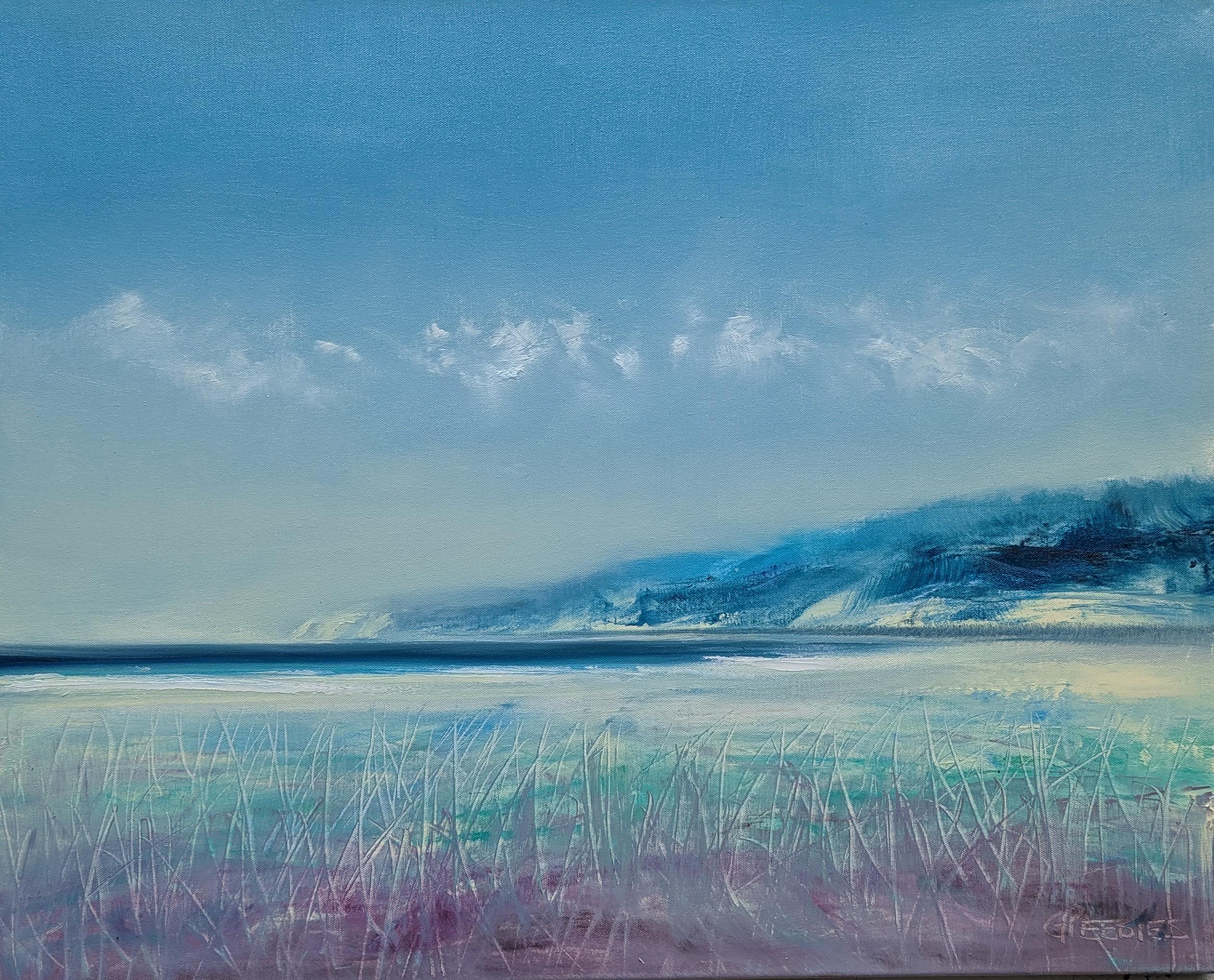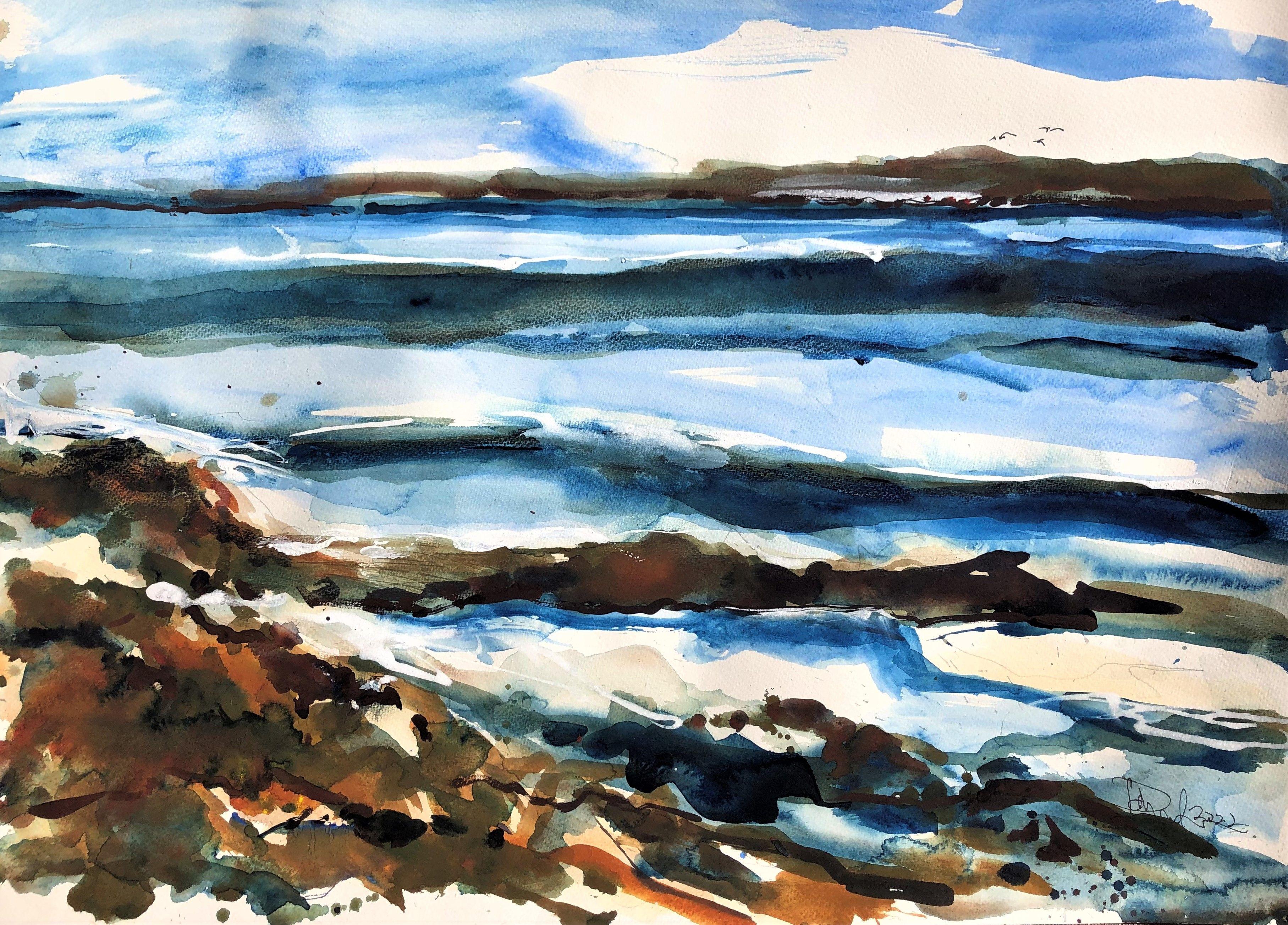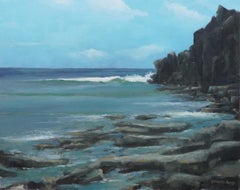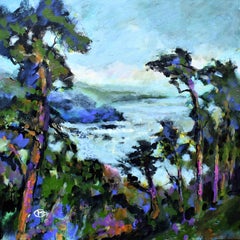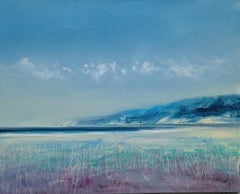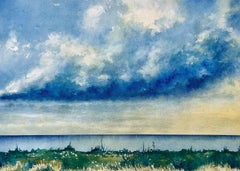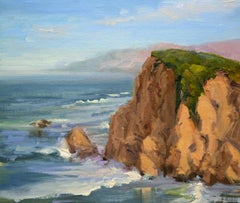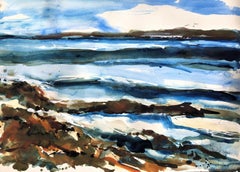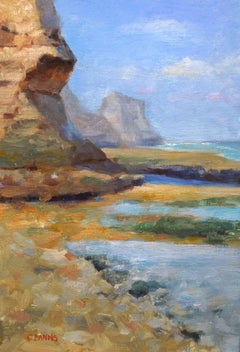James NyikaEdge of the Cape, Original Painting2024
2024
About the Item
Artist Comments
A high vantage point reveals the breathtaking beauty of an island near the Cape of Good Hope. The composition showcases the vast, shimmering ocean and rugged coastline, brought to life through vibrant colors and luminous light. The scene evokes a profound sense of awe and serenity.The painting has a half-inch border and a deckled edge.
About the Artist
Artist James Nyika paints the glowing atmosphere of cities across the world. As a child growing up in Kenya, he found art materials at the student bookshop and also borrowed just about every art history volume from the British Council library in Nairobi. "I checked out the same books over and over just to stare at the art, to try and understand how it was created," says James. With family encouragement to study engineering, James moved to the U.S. and immersed himself in science studies at Boston University. Several years after embarking on a tech career, he set a goal to create at least one painting a week, never throwing away any works and learning as much as possible in his off hours. Today, James still balances his full-time career designing large software systems with his prolific output as a painter. "Painting is a great antidote to the regularity of a computing profession and I really value it for the uncertainty that it brings - something frowned upon when writing code."
Words that describe this painting: Cape of Good Hope, Good Hope, South Africa, island, marine, atmospheric, sea, water, ocean, coast, Africa, impressionism, seascape, watercolor painting, blue
Edge of the Cape
James Nyika
Watercolor painting on paper
Ready to frame
One-of-a-kind
Signed on front
2024
30 in. h x 22 in. w
0 lbs. 4 oz.
- Creator:James Nyika
- Creation Year:2024
- Dimensions:Height: 30 in (76.2 cm)Width: 22 in (55.88 cm)Depth: 0.1 in (2.54 mm)
- Medium:
- Movement & Style:
- Period:
- Condition:Edge of the Cape. James Nyika. Watercolor painting on paper. Ready to frame. One-of-a-kind. Signed on front.
- Gallery Location:San Francisco, CA
- Reference Number:Seller: 788081stDibs: LU922115577712
- ShippingRetrieving quote...Shipping from: Medford, MA
- Return Policy
More From This Seller
View AllArtist Comments
The rugged beauty of the Oregon coast unfolds as land and sea collide in a dynamic display. A hazy summer sky drifts above, while broad, weathered rocks anchor ...
21st Century and Contemporary Impressionist More Art
Oil
Artist Comments
Windswept cypress trees lean along the coast near Carmel, California. Distant water merges with the sky, blending their shades of blue, while touches of purpl...
21st Century and Contemporary Impressionist More Art
Acrylic
Artist Comments
Artist George Peebles presents a glorious coastal line in the style of impressionism. "Personal space at the beach," says George. The cool blue and purple hue...
21st Century and Contemporary Impressionist More Art
Oil
Artist Comments
A serene view of the Pacific Ocean unfolds from Highway 1 along the California coastline. Layers of wet-on-wet brushwork capture the drifting cloud patterns and...
21st Century and Contemporary Impressionist More Art
Watercolor
Artist Comments
A dirt path cuts between a golden field and the San Francisco Bay, leading to the rolling hills in the distance. Vibrant colors bring warmth to the scenery. Art...
21st Century and Contemporary Impressionist More Art
Encaustic
Artist Comments
Cypress and pine trees frame a serene view of a cove facing the Pacific Ocean. The beach shimmer in the distance as wisps of fog lift into the blue sky. Bold ...
21st Century and Contemporary Impressionist More Art
Acrylic
You May Also Like
21st Century and Contemporary Impressionist Paintings
Oil
2010s Impressionist Landscape Paintings
Canvas, Oil
21st Century and Contemporary Impressionist Drawings and Watercolor Pain...
Watercolor
2010s Impressionist Paintings
Oil
21st Century and Contemporary Contemporary Landscape Paintings
Oil, Board
2010s Contemporary Paintings
Oil
